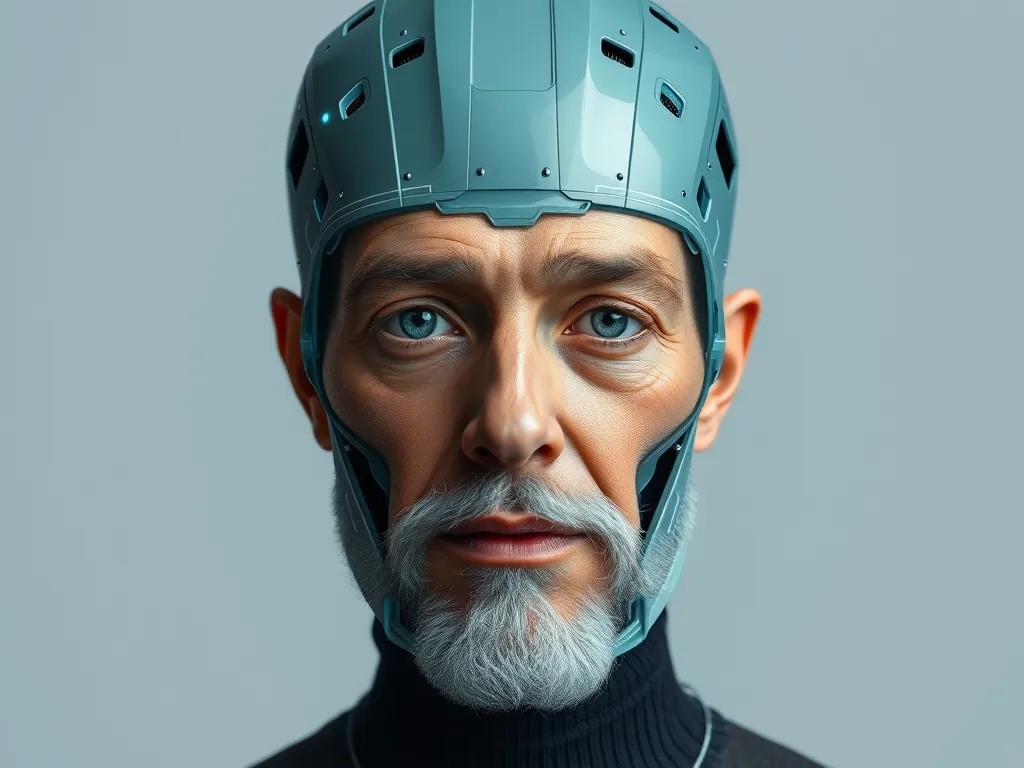In recent years, there has been a significant advancement in the field of Artificial Intelligence (AI) and Augmented Reality (AR). These technologies have become increasingly popular and have the potential to enhance virtual experiences in various fields such as gaming, education, healthcare, and...
AI Created a Portrait That Everyone Mistakes for a Real Person

In an era where artificial intelligence continues to blur the lines between reality and simulation, a single AI-generated portrait has captured the world's attention by achieving something remarkable: complete photorealism that fools even the most discerning observers. This digital masterpiece has sparked conversations about the future of art, the nature of reality, and the unprecedented capabilities of modern AI technology.
The Portrait That Broke the Internet
The portrait in question emerged from advanced generative AI systems capable of creating hyperrealistic human faces that are indistinguishable from photographs of actual people. What makes this particular image extraordinary is not just its technical excellence, but the widespread confusion it has generated across social media platforms and art communities worldwide.
Viewers encountering the portrait for the first time consistently assume they're looking at a professional photograph of a real person. The level of detail is staggering – from the subtle variations in skin texture to the authentic light reflection in the eyes, every element contributes to an illusion so convincing that it challenges our fundamental understanding of what constitutes reality in digital media.
The Technology Behind the Magic
Generative Adversarial Networks (GANs)
The creation of such realistic portraits relies heavily on Generative Adversarial Networks, a revolutionary AI architecture that pits two neural networks against each other in a creative battle. This technology has evolved rapidly, enabling the generation of images that surpass previous quality benchmarks.
Key Technical Achievements
- Advanced facial geometry modeling that captures natural asymmetries
- Sophisticated lighting simulation that mimics professional photography
- Realistic skin texture rendering with appropriate imperfections
- Natural eye movement and expression capture
- Accurate hair strand detail and natural color variation
The Viral Phenomenon
When the portrait first appeared online, it quickly went viral as users shared what they believed to be an exceptionally striking photograph of an unknown person. The revelation that the subject was entirely artificial sent shockwaves through online communities, generating millions of views and thousands of comments from people expressing disbelief and fascination.
Social Media Impact
The portrait's journey across social platforms highlighted several important phenomena:
- The speed at which compelling visual content spreads in digital networks
- People's instinctive trust in photographic evidence
- The psychological impact of discovering that trusted visual information is artificial
- The emergence of new forms of digital literacy requirements

Implications for Society and Art
Artistic Revolution
This breakthrough represents a fundamental shift in artistic creation, where human creativity combines with machine precision to produce works that challenge traditional boundaries between human and artificial art. Artists are now exploring new collaborative relationships with AI systems, using them as sophisticated tools for creative expression.
Ethical Considerations
The portrait's success raises important questions about consent, identity, and authenticity in the digital age. If AI can create convincing representations of people who never existed, what implications does this have for privacy, identity theft, and the trustworthiness of visual media?
The Future of AI-Generated Art
This remarkable portrait serves as a preview of what's to come in AI-generated visual content. As technology continues advancing, we can expect even more sophisticated creations that challenge our perceptions and expand the possibilities of digital art.
Emerging Applications
- Entertainment industry character creation
- Marketing and advertising personalization
- Historical reconstruction and education
- Therapeutic applications in psychology
The AI-generated portrait that fooled the world represents more than just a technological achievement – it's a milestone in the evolution of human-machine creative collaboration. As we navigate this new landscape where artificial and authentic become increasingly difficult to distinguish, we must develop new frameworks for understanding, evaluating, and appreciating the art of tomorrow.
This remarkable creation challenges us to reconsider our definitions of reality, authenticity, and artistic value, while opening exciting possibilities for creative expression in the digital age.



